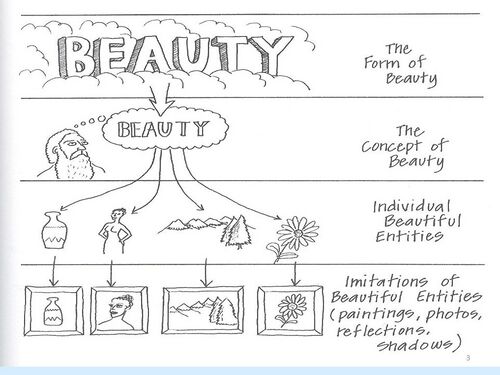The official discord link if you wish to join the discord: https://discord.gg/j5RKwCvAFu
Support the wiki on our official Ko-Fi page or Patreon page!
Abstract Manipulation

Summary
Conceptual Manipulation is the ability to manipulate, create, and destroy concepts. This ability has many applications which varies. Conceptual Manipulation is the indirect change of the world around the user by changing the underlying concepts which govern the reality they exist in.
Each concept is linked with its respective item. And thus, changing the concept will change every object in the same way the concept itself was changed, mirroring the same effort and thus, being the ultimate representation of what the concept is.
Possible Uses
- Concept Creation: The ability to create concepts, to add a concept to reality, changing the fundamental way of Reality. With the ability to create concepts, there is virtually nothing the user can do within his power range, as the underlying ways of reality are their's to command, to create a concept is to add it to all reality, to change the functions of the Universe to suit the new concept, resulting in changes across History and the Future.
- Concept Alteration: The ability to manipulate, alter, or change concepts. The user of this ability can change how a concept functions, to change the concept of an Apple so that Apples are Green, or are living, resulting in them always have been living and Green.
- Concept Destruction: The ability to destroy or remove a concept. The user of this ability can virtually destroy anything on a fundamental level, to remove a concept means that it would never exist and never had existed. And to restore the concept would require equal if not greater power, similarly to restore something destroyed on a conceptual level.
Types
1 - Platonic Concept: Platonic concepts are concepts borne from the Greek Philosopher Plato, where we what see around us are nothing more than imperfect imitations of the true thing, which exists in a higher, abstract plane of existence. Plato's analogy, with the shadows of the true abstract form being imprinted onto a wall, from which we see their forms. Plato described his forms as Aspatial and Atemporal within his writings in the Timaeus, and thus, Platonic forms are 1-A by definition, the ultimate form of the item it represents. To destroy the Platonic form of a concept would to destroy all relating concepts and all copies of the Platonic concept, resulting in the concepts never existing and never to exist again.
2 - Aristotelian Concept: Such concepts are abstract and govern all reality. These concepts shape everything, and changing them would either require the alteration of every object of the concept or, if manipulated directly, change all objects of the concept alongside the concept itself. These concepts, however, exist simultaneously with and are bound by the object of the concept. In this way, an abstract Aristotelian Concept can be destroyed by destroying all objects of the concept, restored by re-making an object of a previously existent concept, or changed by changing all objects of the concept across reality. This, however, does not qualify for this form of conceptual manipulation, and is rather treated as a byproduct of another action akin to a "domino effect". This type of conceptual manipulation can only be obtained if the abstract concept itself is changed directly, and not by indirect methods. For example, destroying humanity and thus "ending the concept of humanity" would not qualify, while directly "ending the concept of humanity" and thus destroying humanity.
3 - Classical Theory: The Classical Theory of Concepts is the type of concepts often prescribed by sight and psychology, where we give the Concept based on sight and logic, and can associate Concepts with each other. Such as the Unmarried and Man coming under the Bachelor. Concept acquisition can be understood as a process in which new complex concepts are created by assembling their definitional constituents. Categorization can be understood as a psychological process in which a complex concept is matched to a target item by checking to see if each and every one of its definitional constituents applies to the target. These concepts are purely abstract, but are controlled by how they are viewed, to change the perception of the concept is to change the concept itself. Classical Theory of Concepts does not have a defined conceptual structure besides a underlying logical one, and is the simplest version of these concepts.
Limitations
- A Conceptual Manipulator's ability to destroy concepts may change the user's memories, and may not be able to restore the concept once destroyed concept once it has been obliterated unless shown otherwise.
- Any and all Conceptual Manipulators are bound by the type of concept they have been shown to manipulate. A character able to manipulate a concept on a Type 3 level cannot manipulate any higher concept type.
